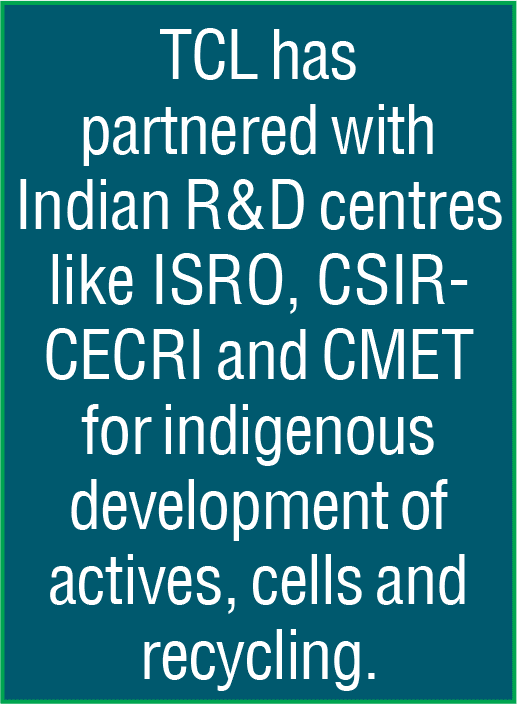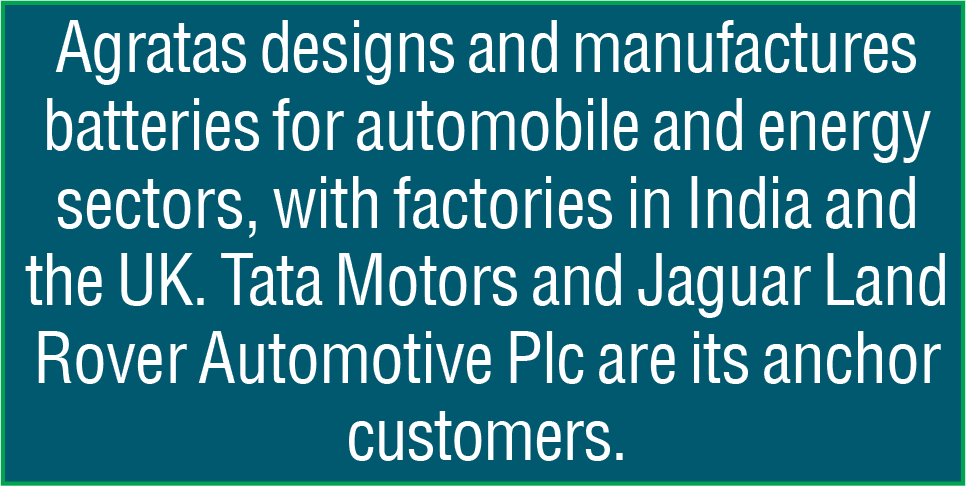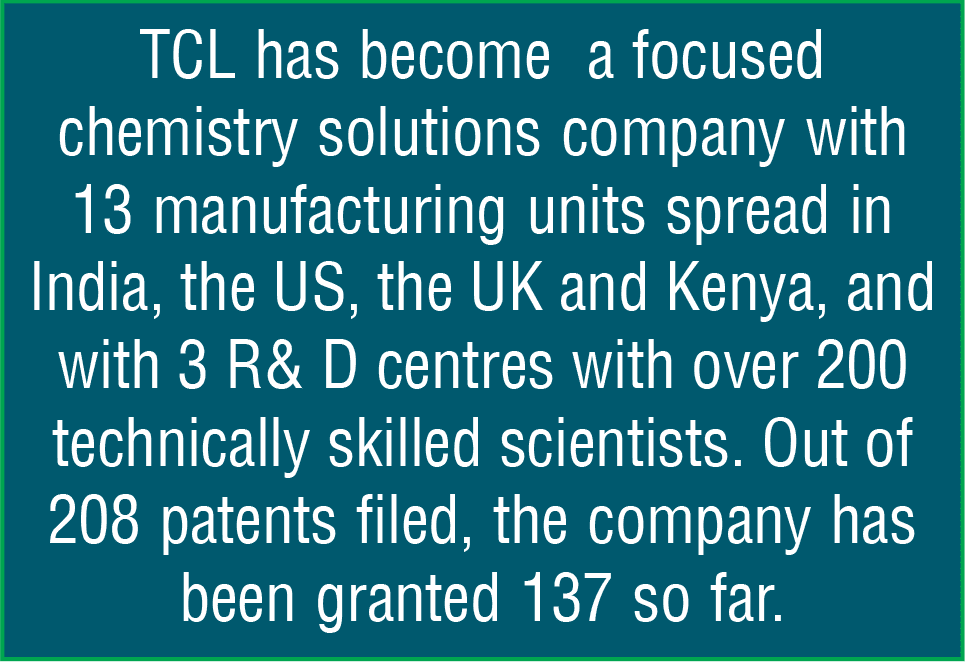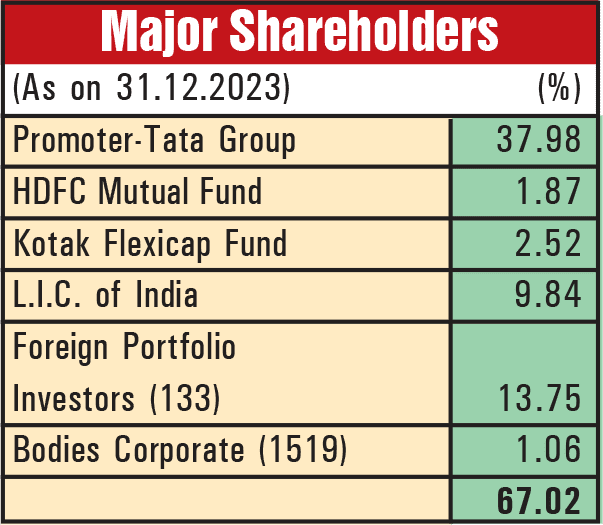Want to Subscribe?
Read Corporate India and add to your Business Intelligence

![]() Unlock Unlimited Access
Unlock Unlimited Access

Published: March 31, 2024
Updated: March 31, 2024
Tata Chemicals (TCL) started operating its Li-ion battery recycling plant in 2019. While it is not known which method is being used to extract valuable metals at its pilot project, the company has been successfully recycling spent Li-ion batteries at its 3P facility located at Palghar, near Mumbai. It has also announced a scale-up to recycle 500 tonnes of spent Li-ion batteries.
TCL’s recycling unit is a source of metal salts having wide applications. Lithium carbonate is put back into the manufacturing process as raw material for energy storage devices, including button cells and power banks. Similarly, cobalt sulfate finds applications as raw material in storage batteries and electroplating, whereas nickel hydroxide cake is used for the manufacturing of positive nickel electrodes for alkaline batteries.
India generates about 65,000-70,000 tonnes of lithium-ion battery waste every year. The traditional ways of extracting and recycling the metal from used batteries are not only expensive but are also not environmentfriendly.
Under the ‘hybrid hydrometallurgy’ method, the batteries are taken through a 3-step process — extraction, selective separation and purification. This helps in recovering valuable spherical graphite and separate compounds like lithium, cobalt, nickel, manganese and other metal salts. The recovered metals and minerals have different applications such as catalyst manufacturing, metallurgy or grease manufacturing, and pharmaceuticals. A few companies in the field retain some recovered minerals to make a base cathode active material, which is useful for manufacturing sodiumion and lithium-ion cells.

It’s important to highlight that recovery is better than extraction from fresh ore. In the normal course, a tonne of lithium ore yields 2-7 kg of the metal. However, recycling a tonne of lithium-ion batteries can give 18-30 kg. This favourable economics encourages the recycling industry.
Lithium-ion cells are one of the most critical components for energy transition. TCL, with its inherent strength in chemistry, has created a platform for electro-chemistry solutions. The company has partnered with Indian R&D centres like ISRO, CSIR-CECRI and CMET for indigenous development of actives, cells and recycling. In 2019, TCL had made an announcement for setting up a 10 GW lithium-ion battery plant in Gujarat with an investment of Rs 4,000 crore. The company was also allotted 126 acres of land at Dholera Industrial Smart City, near Ahmedabad.

In another important development, in June 2023, Tata group subsidiary Agratas Energy Storage Solutions Pvt Ltd signed an MoU with the Gujarat government for setting up a 20 GW factory to manufacture Li-ion batteries at Sanand with an initial investment of Rs 13,000 crore. Agratas designs and manufactures batteries for automobile and energy sectors, with factories in India and the UK. Tata Motors and Jaguar Land Rover Automotive Plc are its anchor customers.
As per unconfirmed news reports, the Tata group is considering a potential spinoff of its battery business as the conglomerate expands its foray into the country’s renewable and electric vehicle sectors. This might eventually break out Agratas as an independent unit and will allow the Tatas to raise funds by going public and getting it listed. It is estimated that listing may value Agratas at $ 5-8 billion, depending on its growth and market sentiment.
If this materalises, it’s difficult to envisage the role of TCL. It would be worth watching whether the company is made a part of Agratas in the proposed venture, or will be allowed simultaneously to move ahead with its 10 GW Li-ion battery unit, or if TCL’s plan will be abandoned. Obviously, needed clarity is desirable from the management in this regard because the future incremental growth of TCL is linked to some extent with this prestigious and remunerative venture. However, during the earning conference call after the release of Q3 financial results, R Mukundan, Managing Director & CEO, has said, “Yes, we are engaged with our group company Agratas and we’ll come back as and when we finalise the plan.” Undoubtedly, this business holds good potential.

When asked about the demand of soda ash in the battery segment especially due to the prevailing slowdown, Mr Mukundan explained that “the projects which are already commissioned will continue to run at their current capacities as they are fully on stream. So, we don’t see a reduction in demand because these are continuous process plants. And at the current pricing of lithium, we see that new capacity coming up on stream are getting impacted and will find it challenging as the return on investment will be subdued for some time. So they may be just postponed. But we think this is not a longterm trend. We don’t believe it as a permanent situation.”
In another reply to whether any alternative commodity could replace lithium or create some other equations, Mr Mukundan said, “For mobility applications today, for passenger vehicles or LCV and other similar light vehicles, lithium is the best solution. For commercial and heavy truck segments, hydrogen is the solution. And for stationary, there are many solutions, including sodium. China has started to see some sodium chemistry come on stream but these are in the early stages.”
Globally, TCL is the 3rd largest soda ash producer and the 6th largest in sodium biocarbonate. Moreover, capacity expansion is under implementation in most of its products. Imporantly, after the divestment of the urea, phosphate fertiliser business and the subsequent demerger of the consumer products business into Tata Consumer Products, TCL has become a focused chemistry solutions company with 13 manufacturing units spread in India, the US, the UK and Kenya, and with 3 R& D centres with over 200 technically skilled scientists. Out of 208 patents filed, the company has been granted 137 so far. Rallis India is its listed subsidiary having a 55.04% stake and is into crop care, crop protection and seeds.

On a consolidated basis, during the first nine months TCL’s revenue has been Rs 11,946 crore against Rs 12,382 crore in the same period of FY23, whereas its EBITDA and PAT were at Rs 2,404 crore and Rs 1,267 crore respectively, vis-à-vis Rs 2,857 crore and Rs 1,758 crore in the previous year. The gross debt got reduced to Rs 5,912 crore and net debt has gone up to Rs 4,377 crore. Fitch Ratings has affirmed the long-term foreign currency issuer default rating (IDR) at BB+ and revised the outlook on the rating to stable from positive.
Of late, the TCL counter is witnessing high price volatility with expanded volumes in the market. After the announcement of its reduced revenues and profitability in Q3 performance, the stock price went down to Rs 933 — near its yearly low of Rs 922 (April 19, 2023). However, suddenly in the first week of March this year, the price shot up to Rs 1,394 (March 7, 2024) which is now its yearly high. This happened purely because of a strong and baseless rumour that Tata Sons would get listed on the bourses and TCL would sell its holding of 10,237 shares and get benefited.

These developments apart, the ground reality is that TCL is absolutely a blue chip company on a strong wicket with sound fundamentals, a bright outlook and many intrinsic strengths. Moreover, its Li-ion battery recycling venture and the proposed 10 GW Li-ion battery project both have tremendous potential to add value to the stock. However, it is equally true that earnings from its core chemical business could take some time to stabilize until the geopolitical scenario, especially the Russia- Ukraine war, gets settled. Investors with 18-24 months’ patience could reap good appreciation on their investment by buying TCL at the current price of Rs 1,035, market capitalisation of Rs 26,364 crore with an attractive PE valuation of 11.60.

February 15, 2025 - First Issue

Industry Review

Want to Subscribe?
Read Corporate India and add to your Business Intelligence

![]() Unlock Unlimited Access
Unlock Unlimited Access
Lighter Vein

Popular Stories
Archives
